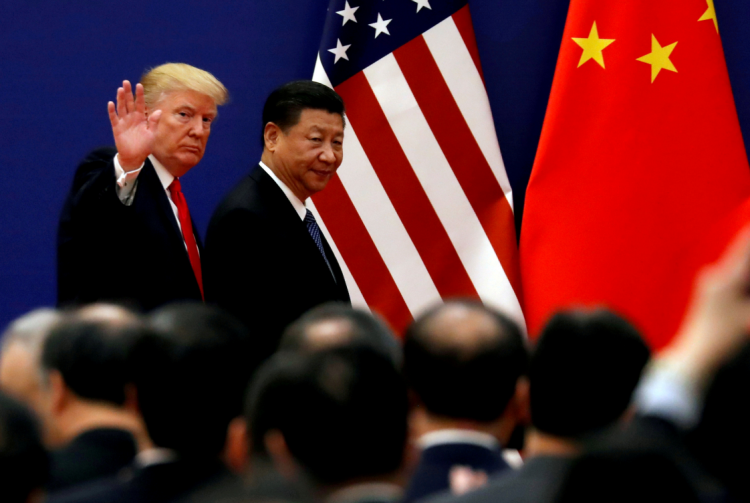President Donald Trump on Thursday threatened to levy new tariffs on China worth more than $300 billion "... at the right time" even as economic growth in China, the United States, and Europe continue to slow down due to Trump's debilitating trade war.
The new $300 billion tariffs mentioned by Trump will be in addition to the 25 percent tariffs he said he intends to impose on $300 billion worth of Chinese imports to the U.S. within the next few months. On May 17, Trump increased tariffs to 25 percent from 10 percent on $200 billion of Chinese goods.
Trump did not specify which Chinese goods will be hit by his new tariffs this time.
"Our talks with China, a lot of interesting things are happening. We'll see what happens ... I could go up another at least $300 billion and I'll do that at the right time," said Trump.
"But I think China wants to make a deal and I think Mexico wants to make a deal badly," he said in Ireland on his way to France for the 75th commemoration of D-Day on June 6.
Analysts said Trump's latest threat means the delayed 25 percent tariff increase might now be in the cards. If this does occur, it will mean that all of China's imports to the U.S. will be hit by higher taxes, which American firms and consumers will pay for in the form of higher prices.
China responded to Trump's tariffs by slapping its own tariffs on $60 billion worth of U.S. good. It also revealed an "unreliable entities list" and a much tougher stance against Trump's bullying.
The higher tariffs have already stoked uncertainty in world markets and will lead to higher inflation rates. Equities markets worldwide have reacted to Trump's tariff war with increased volatility.
The trade war is increasingly buffeting China's economy. The International Monetary Fund (IMF) on Wednesday lowered its 2019 growth forecast for China to 6.2 percent from 6.3 percent. It expects China's growth to decelerate to 6 percent in 2020 and to 5.5 percent in 2024.
"The trade tensions have had an impact, significant, but in our view, so far contained," said Kenneth Kang, deputy director of the Asia-Pacific Department at the IMF.
"The renewed trade tensions are a significant source of uncertainty and downside risk to our outlook ... But I think we need to wait a few more months," said Kang.






